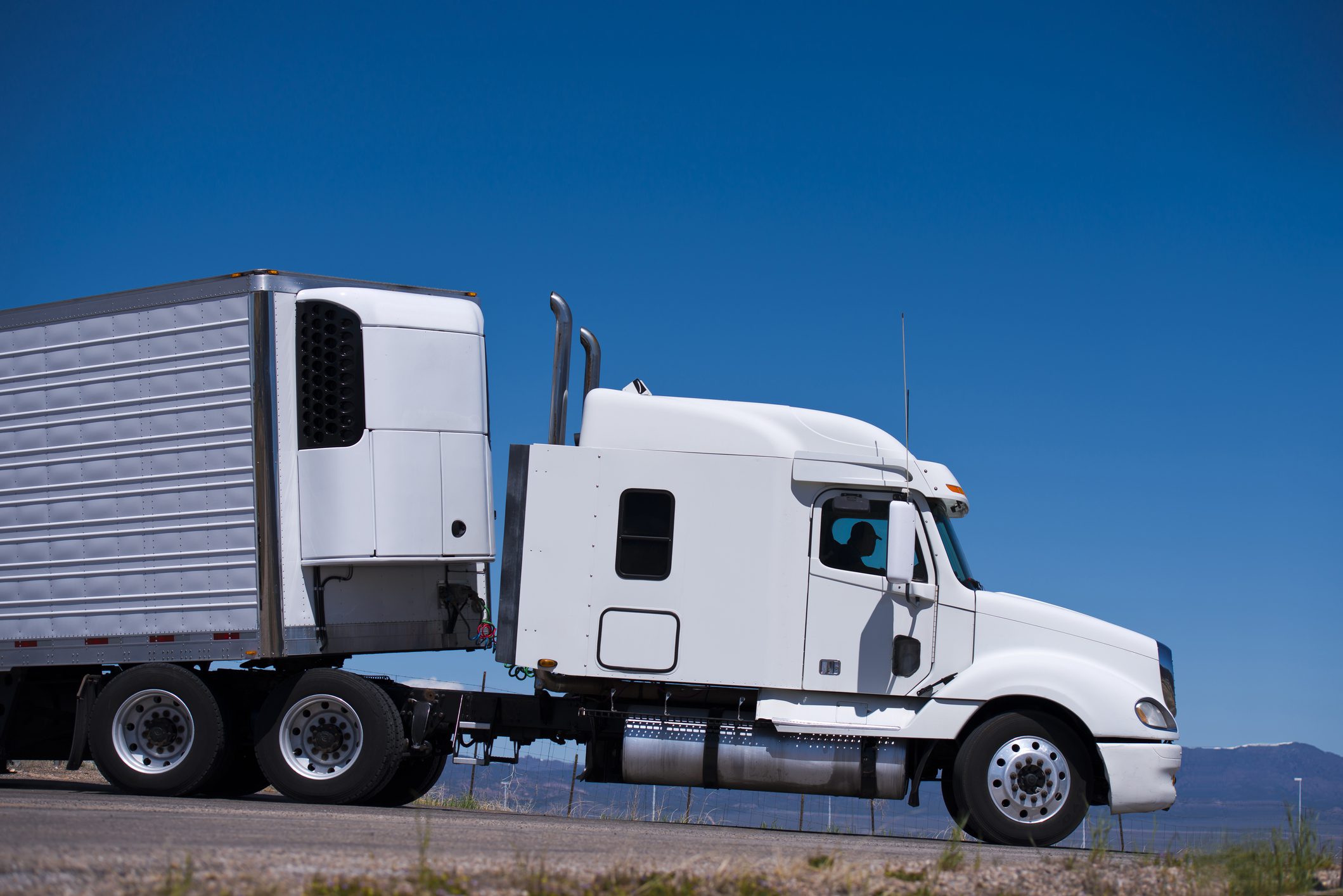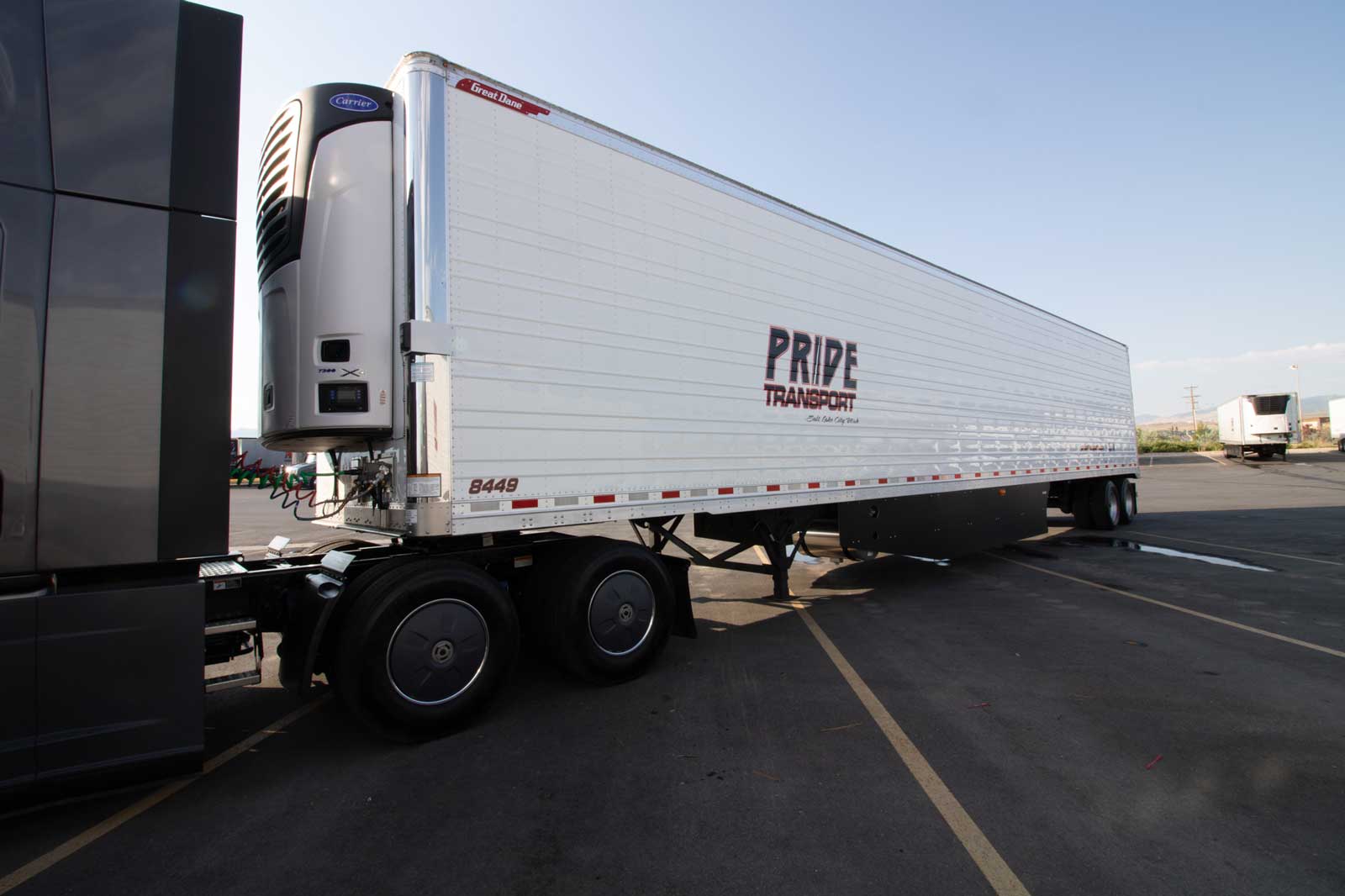Reefer Trucks Thermo King: Leading the Way in Cold Chain Innovation
Reefer Trucks Thermo King: Leading the Way in Cold Chain Innovation
Blog Article
Selecting the Right Transportation Refrigeration System for Your Fleet
Selecting a proper transportation refrigeration system for your fleet is a vital choice that can significantly affect functional performance and product integrity. It requires a thorough understanding of your particular refrigeration requirements, consisting of temperature level requirements and shipment routines. Numerous system kinds offer distinct advantages, yet choosing the best one includes even more than simply technological requirements; it additionally encompasses considerations of budget and future growth. As we explore these vital aspects, it ends up being obvious that the effects of this selection expand much past operational abilities and preliminary costs. What might these implications reveal about your fleet's long-term success?
Recognizing Your Refrigeration Needs
When choosing a transportation refrigeration system, comprehending your specific refrigeration requirements is paramount to guaranteeing product high quality and compliance with market criteria. Numerous variables must be considered to determine the most suitable system for your operation. These include the type of products being transferred, their temperature requirements, and the duration of transit.
For perishable goods, such as fresh fruit and vegetables or drugs, specific temperature level control is essential. Recognizing the temperature level array needed for every product enables the selection of a system that can keep those problems constantly. Furthermore, think about the frequency of deliveries and the range took a trip; longer journeys may necessitate systems with boosted insulation or back-up power choices to stop temperature variations.

Additionally, the capacity of the refrigeration system need to align with your tons dimension. Straining an unit can result in inadequate air conditioning, while an extra-large system may be pricey and ineffective. Lastly, regulatory compliance is vital; acquaint on your own with neighborhood and international guidelines regulating the transport of temperature-sensitive products. By thoroughly assessing these factors, you can ensure that your chosen transport refrigeration system effectively meets your operational requirements and preserves product integrity.
Types of Transportation Refrigeration Solution
Selecting the right sort of transportation refrigeration system is important for guaranteeing the safe transportation of temperature-sensitive products. There are several systems readily available, each created to meet specific demands and applications.
The most common kinds include straight growth (DX) systems, which use cooling agent to take in heat and cool down the cargo location efficiently. These systems are often preferred for their efficiency and reduced preliminary prices. One more option is the main refrigeration system, which serves several compartments or lorries from a single compressor device. This is especially helpful for bigger fleets needing consistent temperature level control throughout various transport devices.
Furthermore, there are self-supporting refrigeration units that combine the compressor and evaporator in one bundle. When room is limited, these systems are optimal for smaller cars or. For specialized applications, such as moving pharmaceuticals or perishables, cryogenic refrigeration systems might be used, employing liquid nitrogen or carbon dioxide to preserve ultra-low temperature levels.
Lastly, hybrid refrigeration systems that integrate diesel and electric power are coming to be progressively popular, using adaptability in power usage and decreasing ecological influence. Comprehending these numerous kinds enables fleet operators to make informed decisions tailored to their particular functional needs.
Trick Features to Consider
How can one make certain that a transportation refrigeration system satisfies all functional demands? To accomplish this, several vital attributes must be meticulously assessed. Firstly, temperature level control is crucial; systems ought to supply exact temperature setups to fit various products, ranging from iced up items to subject to spoiling things.
Energy effectiveness is another vital consideration, as it impacts operational prices. Look for systems that utilize advanced innovation, such as variable rate compressors, to optimize power use without jeopardizing performance.
One more function to evaluate is the integrity and toughness of the tools. Systems constructed from high-quality materials and developed for resilience versus severe problems will reduce maintenance expenses and downtime.
Additionally, the ease of maintenance and availability of parts can substantially influence functional effectiveness (refrigerated transportation thermo king). Attributes like modular designs or remote surveillance capacities can streamline solution processes
Last but not least, compatibility with existing fleet monitoring software program can improve monitoring and reporting processes. By concentrating on these crucial functions, fleet operators can guarantee that their transport refrigeration systems not only satisfy existing demands but likewise adjust to future needs.

Budgeting for Refrigeration Solutions
Evaluating essential attributes of transportation refrigeration systems is only one component of guaranteeing functional performance; budgeting best site for refrigeration solutions is equally important. A well-structured budget plan not only encompasses the initial purchase rate but likewise takes into consideration long-lasting functional costs, including power usage, upkeep, and prospective repair requirements.
When establishing a budget, fleet managers need to first examine the total price of possession (TCO) This includes not just the procurement expenses yet also continuous costs associated with fuel efficiency and the toughness of the refrigeration units. Selecting systems with greater energy performance scores might produce substantial savings with time, reducing upfront expenses.
Furthermore, fleet operators should account for potential scalability. As services grow, the refrigeration requires might change, necessitating upgrades or extra systems. Planning for these future expenses can avoid financial pressure.
Funding choices can also play a vital duty in budgeting. Leasing, finances, or outright purchases each have distinctive economic effects, and recognizing these can help in making an educated decision. Ultimately, a detailed budget plan that considers both future and instant demands makes certain that transportation refrigeration systems contribute positively to the total operational efficiency of the fleet.
Upkeep and Support Choices
In the realm of transport refrigeration systems, efficient maintenance and assistance alternatives are critical for ensuring optimum efficiency and durability. Normal upkeep is necessary to avoid break downs and preserve the integrity of temperature-sensitive freight. It is suggested to establish a routine examination schedule with qualified technicians that can do necessary checks and fixings on refrigeration devices.
Assistance alternatives should include a robust solution arrangement, covering both regular upkeep and emergency situation repairs. linked here This makes sure that your fleet has accessibility to motivate aid, reducing downtime and preserving operational efficiency. Many manufacturers supply detailed assistance packages that consist of training for your team, allowing them to execute standard troubleshooting and maintenance jobs.
In addition, using remote surveillance modern technology can boost your maintenance strategy - reefer trucks thermo king. These systems offer real-time data on temperature and performance, permitting proactive measures before concerns intensify. Purchasing Visit Your URL training and modern technology not just boosts your fleet's integrity however likewise expands the life-span of your refrigeration systems
Ultimately, a tactical method to upkeep and assistance will secure your financial investment and guarantee that your transport refrigeration systems run at peak performance, delivering constant results for your service.

Verdict
In conclusion, picking the appropriate transportation refrigeration system for a fleet requires a comprehensive assessment of details refrigeration demands, system kinds, and important features. In addition, mindful budgeting and planning for future scalability will add to the long-lasting success of the refrigeration strategy.
Choosing a suitable transportation refrigeration system for your fleet is an important choice that can substantially influence operational effectiveness and product stability.When choosing a transport refrigeration system, recognizing your specific refrigeration requirements is critical to making certain item quality and conformity with sector criteria. By thoroughly examining these aspects, you can ensure that your picked transport refrigeration system efficiently satisfies your functional requirements and preserves product integrity.
Eventually, a comprehensive budget that thinks about both immediate and future requirements ensures that transport refrigeration systems contribute favorably to the total operational efficiency of the fleet.
In verdict, choosing the ideal transport refrigeration system for a fleet demands a thorough analysis of certain refrigeration demands, system types, and vital attributes.
Report this page